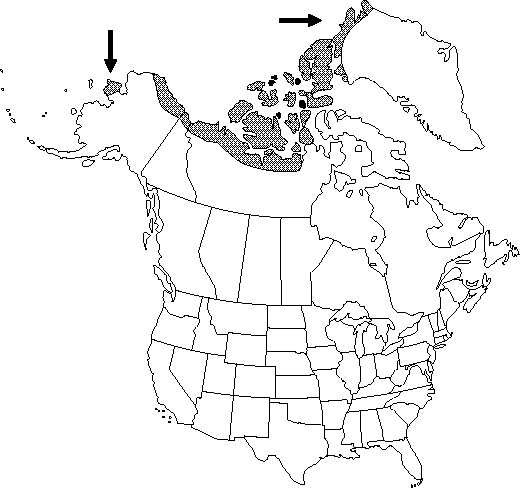Ranunculus sabinei
J. Voy. N.-W. Passage, Bot., 264. 1824.
Stems erect or decumbent, 1-12 cm, sparsely pilose, each with 1-3 flowers. Roots slender, 0.3-0.8 mm thick. Basal leaves persistent, blades broadly obovate to transversely elliptic, 3-lobed or -parted, 0.9-3 × 0.8-3.4 cm, segments undivided or again lobed, base obtuse, margins entire, apices of segments rounded to rounded-obtuse. Flowers: pedicels pilose; receptacle pilose; sepals 4-7 × 2-3 mm, abaxially pilose, hairs colorless; petals 5, 5-8 × 3-4 mm; nectary scale glabrous. Heads of achenes cylindric, 6-9 × 4 mm; achenes 1.2-1.4 × 0.8-1 mm, glabrous; beak lance-subulate, straight or curved, 0.4-0.6 mm. 2n = 64.
Phenology: Flowering summer (Jul–Aug).
Habitat: Slopes and hummocks in tundra, in sandy or gravelly soil
Elevation: 0 m
Distribution

Greenland, N.W.T., Nunavut, Yukon, Alaska.
Discussion
An alternative interpretation of this taxon is given by E. Hultén (1971) who considered it to be the hybrid Ranunculus nivalis × R. pygmaeus, and considered all specimens referable here to be hybrids or members of stabilized populations of hybrid origin.
Selected References
None.